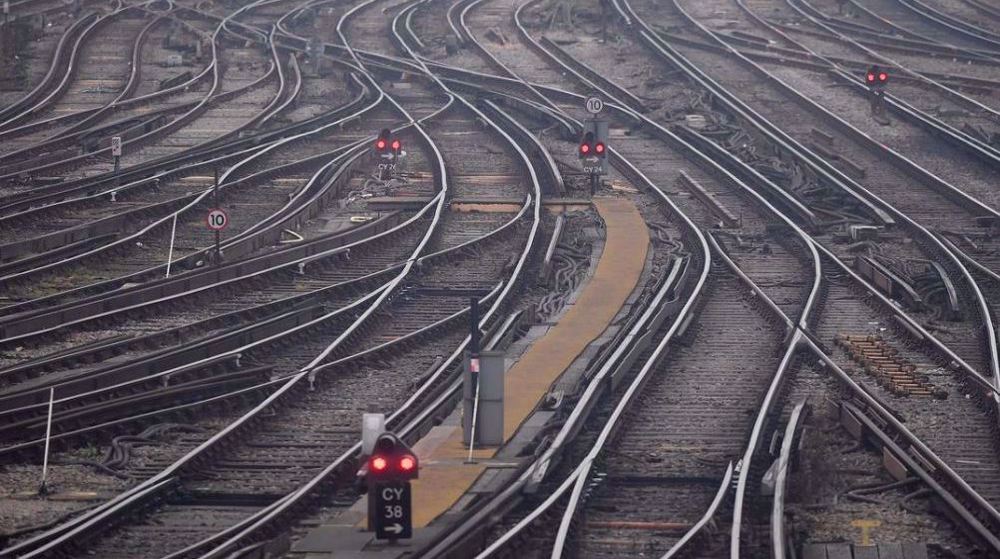Biggest rail strike in three decades hits UK amid cost of living crisis
Tens of thousands of rail staff in Britain have walked out in a dispute over pay and jobs, bringing the country to a standstill in the network's biggest strike action in more than three decades.
The walkout which will continue for three days comes amid a cost-of-living crisis caused by surging inflation risks wider industrial action.
It started after last-ditch talks to avert the strike broke down on Monday, with rail union RMT rejecting offers of below-inflation pay rises by both overground train operators and London Underground that runs the Tube in the capital.
This means more than 50,000 RMT members are set to walk out for a three days national strike on Tuesday, Thursday, and next Saturday.
Rail operators, however, warn of disruption throughout the week, with lines not affected by strike action still having to reduce services.
RMT members on the London Underground are additionally staging a 24-hour Tube train stoppage Tuesday.
The strikes are expected to cause significant disruption to transportation and major events. Schools are warning that thousands of teenagers taking national exams will also be affected.
Transport Secretary Grant Shapps said the government was doing everything it could to minimize the expected "mass disruption".
The strikes are the biggest dispute on Britain's railway network since 1989. British rail union argues the strikes are necessary as wages have failed to keep pace with inflation, which has hit a 40-year high.
Prime Minister Boris Johnson ignored the unions’ demands and denounced the strikes.
“By going ahead with these rail strikes, they are driving away commuters who ultimately support the jobs of rail workers, whilst also impacting businesses and communities across the country,” he said in a statement.
Countries around the world are being hit by decades-high inflation as the Ukraine war and the easing of COVID restrictions fuel energy and food price hikes. Thousands of workers were sacked in the aviation industry during the pandemic.
On Monday, Brussels Airport cancelled all outbound flights after most security staff joined a nationwide strike for better pay as soaring inflation hit workers' purchasing power.
The strikes are compounding wider travel chaos, especially after airlines were forced to cut flights owing to staff shortages, causing chaotic delays and last-minute cancellations.
Other areas of the public sector are set to hold strikes.
The Criminal Bar Association, representing senior lawyers in England and Wales, have voted to strike from next week in a row over legal aid funding.
Four weeks of action begin on Monday and Tuesday, increasing by one day each week until a five-day strike from July 18.
Teaching staff and workers in the state-run National Health Service are reportedly also mulling strike action.
And several other transport unions are balloting members over possible stoppages that could occur in the coming weeks.
The UK has recently been struggling with rising living costs, surging inflation, soaring fuel costs, and a worsening job crisis.
The war in Ukraine and subsequent energy crisis as well as an economy still battered by the pandemic are among the main reasons behind the crisis.
'Capitulation': Israeli officials and media concede Gaza defeat as truce unfolds
'Gaza has won': Social media users react to ceasefire with mix of relief, joy
Iran seeks South Korea’s assistance for AI, fiber-optic projects
VIDEO | Iran's 'Eqtedar' (Power) maneuver
Israel hits HTS military target in Syria for 1st time since fall of Assad
VIDEO | Press TV's news headlines
Israel has slaughtered 13,000 students in Gaza, West Bank
VIDEO | More Zionist than Zionists: Biden’s legacy to be defined by Gaza genocide










 This makes it easy to access the Press TV website
This makes it easy to access the Press TV website